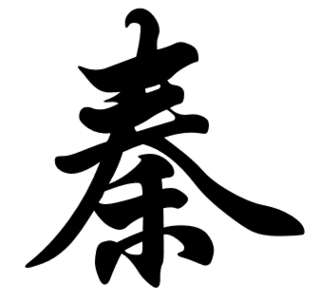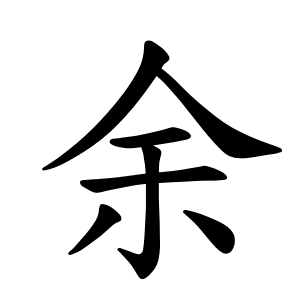Yu Di or Yudi may refer to:

劉 / 刘 is an East Asian surname. pinyin: Liú in Mandarin Chinese, Lau4 in Cantonese. It is the family name of the Han dynasty emperors. The character 劉 originally meant 'battle axe', but is now used only as a surname. It is listed 252nd in the classic text Hundred Family Surnames. Today, it is the 4th most common surname in Mainland China as well as one of the most common surnames in the world.
The Chinese sovereign was the ruler of a particular monarchical regime in the historical periods of ancient China and imperial China. Sovereigns ruling the same regime, and descended from the same paternal line, constituted a dynasty. Several titles and naming schemes have been used throughout Chinese history.
Wu may refer to:

Zhao is a Chinese-language surname. The name is first in the Hundred Family Surnames – the traditional list of all Chinese surnames – because it was the emperor's surname of the Song dynasty (960–1279) when the list was compiled. The first line of the poem is 趙錢孫李.

Song is the pinyin transliteration of the Chinese family name 宋. It is transliterated as Sung in Wade-Giles, and Soong is also a common transliteration. In addition to being a common surname, it is also the name of a Chinese dynasty, the Song dynasty, written with the same character.
Di or DI may refer to:
Li Yu may refer to:

Xue is the pinyin romanization of the Chinese surname 薛 (Xuē). It is romanized as Hsüeh in Wade-Giles. In Hong Kong and Macau it is usually romanized through its Cantonese pronunciation Sit. In Korean, it corresponds to Seol (설), in Japanese to Setsu and in Vietnamese to Tiết. in Indonesia and Netherlands, it is commonly spelled as Siek. According to the 2010 Chinese Census, it is the 76th most common surname in China, a sharp decline from 48th in 1982. In a study by geneticist Yuan Yida on the distribution of Chinese surnames, people who carry the name Xue are dispersed throughout the country and is most heavily concentrated in Shanxi. It is the 68th name on the Hundred Family Surnames poem.
Emperor Wu or the Wu Emperor is the posthumous name of numerous Chinese rulers:

Yang is the transcription of a Chinese family name. It is the sixth most common surname in Mainland China. It is the 16th surname on the Hundred Family Surnames text.

Han is a common Chinese surname. The spelling "Han" is based on China's pinyin system and so used throughout Mainland China. Spelling can vary from 'Hon' in Cantonese-speaking areas to 'Hang' in Hainan. It is the 15th name on the Hundred Family Surnames poem. In 2003, Han (韩) is ranked 25th in China in terms of the number of bearers at around 8 million persons. In 2019 it was the 28th most common surname in Mainland China.

Qín (秦) is a common Chinese surname. "Qin" is the hanyu pinyin romanization of the surname for Mandarin, the common dialect of China; other romanizations of the surname include Chin and Jin in Mandarin, Ceon and Cheun in Cantonese, and Tần in Vietnamese. People with this surname are most commonly found in Henan, Shaanxi, Shandong, Sichuan, Hubei and Hebei. It is the 18th name on the Hundred Family Surnames poem.
Dang is a Chinese, Vietnamese and Korean surname. It can also be found in both Hindus and Sikhs of the Punjab region in the north-western India.

Zeng is a Chinese family name. In Cantonese, it is Tsang; In Wade–Giles, such as those in Taiwan, Tseng or Tzeng; in Malaysia and Singapore, Tsen, Chen or Cheng; in the Philippines, Chan; in Indonesia, Tjan; in Vietnam, Tăng. The surname Zeng is the 32nd most common surname in Mainland China as of 2019. It is the 16th most common surname in Taiwan. It meant "high" or "add" in ancient Chinese.

Du (Chinese: 杜; pinyin: Dù; Wade–Giles: Tu4) is a Chinese surname. The name is spelled Tu in Taiwan, in Hong Kong it is translated as To, in Macao it is spelled as Tou, the pronunciation of 杜 in Cantonese. The Vietnamese equivalent of the surname is Đỗ. However, when diacritics are dropped, it can also be from the Vietnamese surnames Dư 余 or Dũ 俞 (Chinese equivalent is both Yu). It is the 129th surname in Hundred Family Surnames and is the 42nd most common surname in Mainland China as of 2020.
Danzhu, surname Qi (祁) and given name Zhu (朱), was given the Fengjian state in Danyuan (丹渊), therefore got the honorable title in reference to the state. As the eldest son of the legendary Chinese monarch Emperor Yao who reigned traditionally c. 2356 – 2255 BCE, Danzhu studied Weiqi from his father.
Si was a Chinese surname during the Xia Dynasty. According to Records of the Grand Historian, the surname of the Xia Dynasty ruler was Si (姒). In general, the Chinese hold Xia founder Yu the Great (禹) to be a descendant of Emperor Yao (堯). It is one of the traditional description was what were known as the "Eight Great Xings of High Antiquity", along with Jiāng, Jī, Yáo, Yíng, Yún, Guī and Rèn, though some sources quote Jí as the last one instead of Rèn. Of these xing, only Jiang and Yao have survived in their original form to modern days as frequently occurring surnames. The Song dynasty-era Hundred Family Surnames poem does not have Si. Although it exists in the modern day, only an estimated 2000 people in Mainland China today share the name.
Jiang is one of the oldest Chinese surnames, being one of the original xing (姓) surnames. It was one of the "Eight Great Xings of High Antiquity", along with Jī (姬), Yáo (姚), Yíng (嬴), Sì (姒), Yún (妘), Guī (媯) and Rèn (妊), though some sources quote Jí (姞) as the last one instead of Rèn. Of these xing, only Jiang and Yao have survived in their original form to modern days as frequently occurring surnames. It is the 32nd surname listed in the Song dynasty-era Hundred Family Surnames poem. It is the 60th most common surname in China (2007), roughly 0.34% of the Han Chinese population. The Lu clan of Fanyang stem from this surname before taking on the Lu (盧) surname. Derivative surnames of Jiang include Zhang, Lü, Qiu, Shen., These originated:

Yu is one of the Chinese family names. It is listed as the 90th surname in the "Hundred Family Surnames". It is also sometimes translated to Yee, the Taishanese spelling, in English. The name is transliterated as Dư in Vietnamese but is very rare in Vietnam. In Indonesia, it is transliterated as Oe It is the 90th name on the Hundred Family Surnames poem.
Wen is a Chinese surname. simplified Chinese: 温; traditional Chinese: 溫; pinyin: Wēn), meaning "warm", is sometimes romanised as Wen or Vun in Taiwan, Ôn in Vietnamese, Wan in Cantonese, or Wen/Won/Wan/Bong/Voon/Oon/woon/Man/Mun in Malaysia. According to a 2013 study it was found to be the 104th-most common surname, shared by 2,170,000 people or 0.160% of the population, with the province with the most people being Guangdong.